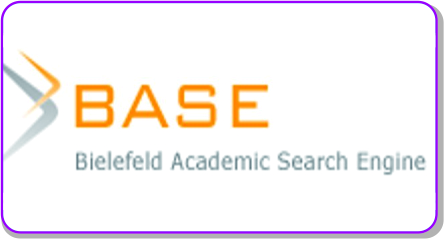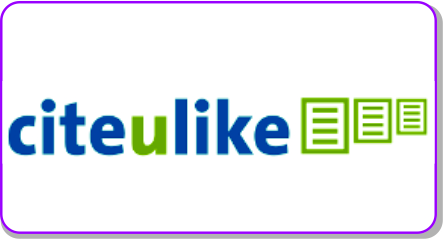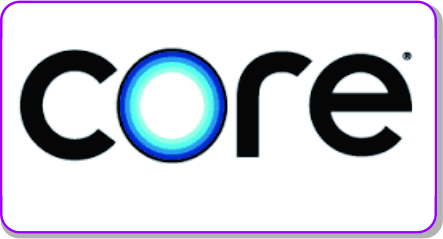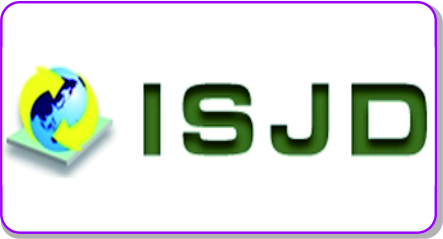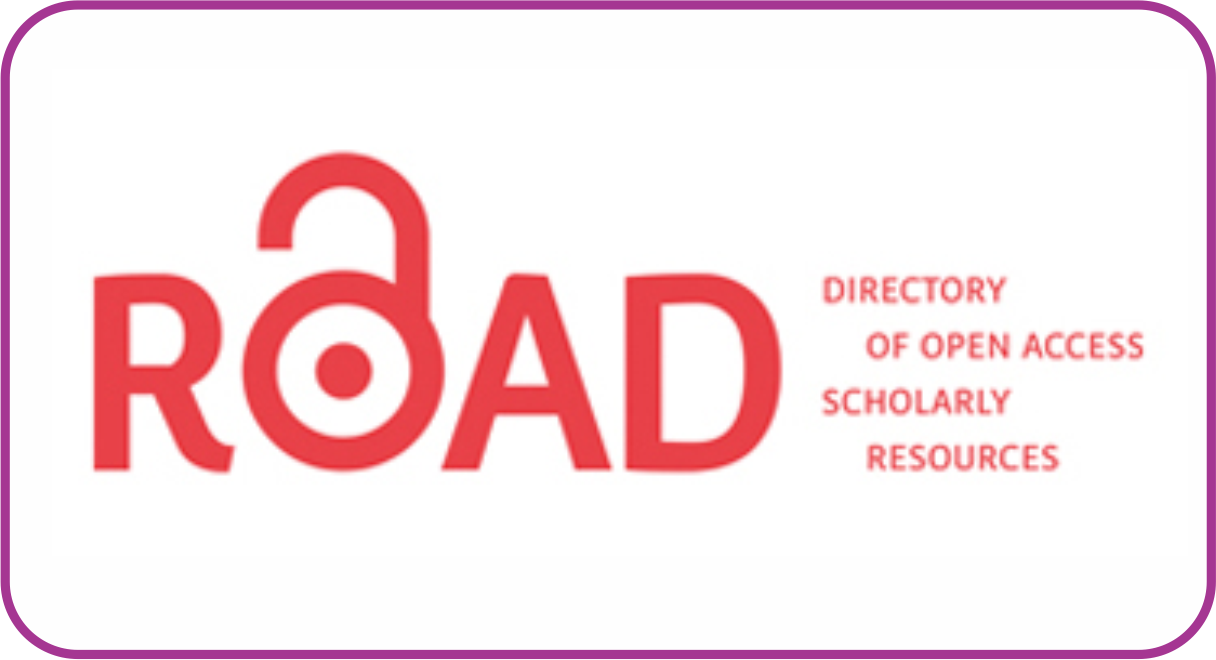Assessing Digital Literacy Skills among Indonesian University Students in the Age of Society 5.0
DOI:
https://doi.org/10.30983/educative.v9i2.8678Keywords:
digital literacy, digital technology, higher education, era 5.0Abstract
Students, as the younger generation, must have adequate digital literacy skills to adapt and develop in this era. This research aims to identify and analyze portraits of students' digital literacy skills in Indonesia in the 5.0 era. This research used quantitative methods involving 99 student respondents from various campuses throughout Indonesia. The instrument used in this research is a questionnaire developed by Nugroho (2020), which uses the digital literacy measurement component from Digital Digital Literacy Across the Curriculum (Hague & Payton, 2010) with a reliability score of α = 0.961. The research results showed that most (73%) respondents were in the medium digital literacy skills category. The results also show that stu3edents achieved high scores in the skills components of seeking and selecting information, communication, digital security, collaboration, and creativity. Mid-average scores were achieved for the functional skills component, critical thinking, and evaluation abilities. Meanwhile, the lowest score was in the social and cultural understanding component. The findings of this research can be used for various purposes, such as designing digital literacy education and training programs that are right on target, developing digital tools and platforms that are easy to use by people with various levels of digital literacy, and creating effective policies and regulations related to digital literacy.
References
Journal
Aguilar, David, and Manoli Pifarre Turmo, ‘Promoting Social Creativity in Science Education with Digital Technology to Overcome Inequalities: A Scoping Review’, Frontiers in Psychology (Frontiers Media S.A., 2019), doi:10.3389/fpsyg.2019.01474
Alismaiel, Omar A., Javier Cifuentes-Faura, and Waleed Mugahed Al-Rahmi, ‘Social Media Technologies Used for Education: An Empirical Study on TAM Model During the COVID-19 Pandemic’, Frontiers in Education, 7 (2022), doi:10.3389/feduc.2022.882831
Al-Kahlan, Thabet Bin Saeed, and Mohamad Ahmad Saleem Khasawneh, ‘Motivations for Using Social Media Among University Students’, Kurdish Studies, 12.1 (2024), pp. 2051–4883, doi:10.58262/ks.v12i1.153
Araújo-Vila, Noelia, Lucília Cardoso, Diego R. Toubes, and Jose Antonio Fraiz-Brea, ‘Digital Competence in Spanish University Education and Its Use by Students’, Publications, 8.4 (2020), pp. 1–15, doi:10.3390/publications8040047
Arslantas, Tugba Kamali, and Abdulmenaf Gul, ‘Digital Literacy Skills of University Students with Visual Impairment: A Mixed-Methods Analysis’, Education and Information Technologies, 27.4 (2022), pp. 5605–25, doi:10.1007/s10639-021-10860-1
Belonovskaya, I, E Matvievskaya, E Saitbaeva, Alla Ksenofontova, S Usmanov, M Zatsepina, and others, ‘Digital Communication in Educational Process: Development Trends and New Opportunities’, Online Journal of Communication and Media Technologies, 2020, p., doi:10.29333/ojcmt/7928
Bhat, Reyaz Ahmad, Digital Literacy Development: Assessing The Efficacy Of Online Learning Platforms In Enhancing Students’ Information Fluency, International Journal of Social Science
Biru, Rembulan Catra Banyu, Asep Saepudin, and Sardin, ‘Analisis Literasi Digital Terhadap Pembelajaran Mandiri Di Masa Pandemi Covid-19’, Indonesian Journal Of Adult and Community Education, 02.02 (2020), pp. 61–69
Campo, Lucía, Héctor Galindo-Domínguez, María José Bezanilla, Donna Fernández-Nogueira, and Manuel Poblete, ‘Methodologies for Fostering Critical Thinking Skills from University Students’ Points of View’, Education Sciences, 13.2 (2023), doi:10.3390/educsci13020132
Coşkunserçe, Ozan, and Şeyhmus Aydoğdu, ‘Investigating the Digital Skills of Undergraduate Students in Terms of Various Variables’, Journal of Educational Technology and Online Learning, 5 (2022), doi:10.31681/jetol.1151461
Dinata, Karsoni Berta, ‘Analisis Kemampuan Literasi Digital Mahasiswa’, Edukasi: Jurnal Pendidikan, 19.1 (2021), p. 105, doi:10.31571/edukasi.v19i1.2499
Escueta, Maya, Andre Joshua Nickow, Philip Oreopoulos, and Vincent Quan, ‘Upgrading Education with Technology: Insights from Experimental Research’, Journal of Economic Literature (American Economic Association, 2020), 897–996, doi:10.1257/JEL.20191507
Far-far, Gazali, ‘Efektifitas Penggunaan Aplikasi Zoom Meeting Dalam Pembelajaran Di Masa Pandemi Covid-19’, ISTORIA: Jurnal Pendidikan Dan Sejarah, 17.1 (2021), pp. 1–15
Feni Haryati, Linda, Konferensi Video Sebagai Alternatif Media Pembelajaran Pada Masa Pandemi Covid-19, 2021, III
Gao, J, J Zhao, J Wang, and J Wang, ‘The Influence Mechanism of Environmental Anxiety on Pro-Environmental Behaviour: The Role of Self-Discrepancy’, International Journal of Consumer Studies, 45.1 (2021), pp. 54–64, doi:10.1111/ijcs.12604
Guevara-Otero, Niurka, Elena Cuevas-Molano, Esteban Vázquez-Cano, and Eloy López-Meneses, ‘Analysis of Predisposition in Levels of Individual Digital Competence among Spanish University Students’, Contemporary Educational Technology, 15.4 (2023), doi:10.30935/cedtech/13420
Guirao, Pedro García, Fabián Román, Malissa Maria Mahmud, Nieves Gutiérrez-Ángel, and Ngaaaa@ual Es Jesús-Nicasio Sánchez-García, Digital Literacy in the University Setting: A Literature Review of Empirical Studies between 2010 and 2021, 2022
Harmoko, Danang Dwi, ‘Digital Literacy As A Solution To Improve The Quality Of Indonesia’s Human Resources’, Research and Development Journal of Education, 7.2 (2021), p. 413, doi:10.30998/rdje.v7i2.10569
Indahsari, Hafizha Kurnia, Suyanta Suyanta, Hilman Yusri, Nina Khaerunnisa, and Sri Rejeki Dwi Astuti, ‘Analysis of the Use of Android-Based Edusan Learning Media on Students’ ICT Literacy Skills’, Jurnal Penelitian Pendidikan IPA, 9.5 (2023), pp. 2312–18, doi:10.29303/jppipa.v9i5.2808
Jones, Rodney, and Christoph Hafner, Understanding Digital Literacies: A Practical Introduction, Understanding Digital Literacies: A Practical Introduction, 2012, doi:10.4324/9780203095317
Kayaduman, Halil, Ali Battal, and Hamza Polat, ‘The Relationship between Undergraduate Students’ Digital Literacy and Self-Regulation in Online Interaction’, Innovations in Education and Teaching International, 60.6 (2023), pp. 894–905, doi:10.1080/14703297.2022.2113113
Kesici, Ahmet, ‘The Effect of Digital Literacy on Creative Thinking Disposition: The Mediating Role of Lifelong Learning Disposition’, Journal of Learning and Teaching in Digital Age, 7.2 (2022), pp. 260–73, doi:10.53850/joltida.1063509
Komala Dewi, Ratih, Oria Lasmana, and Skunda Diliarosta, ‘How to Cite: Nadhila, A et al (2024). The Influence of Overconfidence and Risk Perception on Investment Decisions: The Moderating Effect of Financial Literacy on Individual Millennial Implications and Impact of Digital Literacy on Higher Education: Systematic Literature Review’, Generation Investors. Journal Eduvest, 4.6 (2024), pp. 5300–5312 <http://eduvest.greenvest.co.id>
Kumar, Vikas, and Pooja Nanda, ‘Social Media as a Learning Tool: A Perspective on Formal and Informal Learning’, International Journal of Educational Reform, 33.2 (2022), pp. 157–82, doi:10.1177/10567879221094303
Lee, Wincy, and Min Yang, ‘Effective Collaborative Learning from Chinese Students’ Perspective: A Qualitative Study in a Teacher-Training Course’, Teaching in Higher Education, 28 (2020), pp. 1–17, doi:10.1080/13562517.2020.1790517
Lincoln, Daniel, and Mary-Louise Kearney, ‘Promoting Critical Thinking in Higher Education’, Studies in Higher Education, 44.5 (2019), pp. 799–800, doi:10.1080/03075079.2019.1586322
López-Meneses, Eloy, Fabrizio Manuel Sirignano, Esteban Vázquez-Cano, and José M Ramírez-Hurtado, University Students’ Digital Competence in Three Areas of the DigCom 2.1 Model: A Comparative Study at Three European Universities, Australasian Journal of Educational Technology, MMXX
Maheswari, D, R Abi, B.Ed Student, and Sakthi Educational, ‘The Interplay between Education and Communication’, Shanlax International Journal of Arts, Science and Humanities, 2024, p., doi:10.34293/sijash.v11is5.7646
Mariyani, and Triyani, ‘Lisensi Internasional Creative Commons Attribution-ShareAlike 4.0 Profil Literasi Digital Mahasiswa Di Era DigitalisasI’, 10.1 (2023), pp. 50–57
Martínez-Cerdá, Juan-Francisco, Joan Torrent-Sellens, and Inés González-González, ‘Promoting Collaborative Skills in Online University: Comparing Effects of Games, Mixed Reality, Social Media, and Other Tools for ICT-Supported Pedagogical Practices’, Behaviour & Information Technology, 37.10–11 (2018), pp. 1055–71, doi:10.1080/0144929X.2018.1476919
Mendo-Lázaro, Santiago, Benito León-Del-Barco, María-Isabel Polo-Del-Río, and Víctor-María López-Ramos, ‘The Impact of Cooperative Learning on University Students’ Academic Goals’, Frontiers in Psychology, 12 (2022), p., doi:10.3389/fpsyg.2021.787210
Mokhtari, Farida, ‘International Journal of Linguistics, Literature and Translation Fostering Digital Literacy in Higher Education: Benefits, Challenges and Implications’, 2023, doi:10.32996/ijllt
Mookerjee, Ria, K. D.V. Prasad, Ridhi Rani, and Ved Srinivas, ‘Student Stress and Its Association With Student Performance and Psychological Well-Being: An Empirical Study on Higher Academic Education Students In And Around Hyderabad Metro’, International Journal of Professional Business Review, 7.5 (2022), doi:10.26668/businessreview/2022.v7i5.753
Morgan, Ashlee, Ruth Sibson, and Denise Jackson, ‘Digital Demand and Digital Deficit: Conceptualising Digital Literacy and Gauging Proficiency among Higher Education Students’, Journal of Higher Education Policy and Management, 44.3 (2022), pp. 258–75, doi:10.1080/1360080X.2022.2030275
Muliani, Anisah, Mahdiya Karimah2, Malla April Liana, Sherena Anodhea, Eka Pramudita4, Muhammad Khoirul Riza5, and others, ‘Pentingnya Peran Literasi Digital Bagi Mahasiswa Di Era Revolusi Industri 4.0 Untuk Kemajuan Indonesia’, Journal of Education and Technology, 1.2 (2021), pp. 87–2 <http://jurnalilmiah.org/journal/index.php/jet>
Musarat, Muhammad Ali, Muhammad Irfan, Wesam Salah Alaloul, Ahsen Maqsoom, and Maria Ghufran, ‘A Review on the Way Forward in Construction through Industrial Revolution 5.0’, Sustainability (Switzerland) (Multidisciplinary Digital Publishing Institute (MDPI), 2023), doi:10.3390/su151813862
Naik, Gopal, Chetan Chitre, Manaswini Bhalla, and Jothsna Rajan, ‘Impact of Use of Technology on Student Learning Outcomes: Evidence from a Large-Scale Experiment in India’, World Development, 127 (2020), p. 104736, doi:https://doi.org/10.1016/j.worlddev.2019.104736
Nasionalita, Kharisma, and Catur Nugroho, ‘Indeks Literasi Digital Generasi Milenial Di Kabupaten Bandung’, Jurnal Ilmu Komunikasi, 18.1 (2020), pp. 32–47
Neolaka, Frengky, Erlin Fatima Halek, and Lusia Naimnule, ‘Kemampuan Literasi Digital Mahasiswa Calon Guru Pendidikan Biologi FKIP Universitas Timor Sebagai Penunjang Praktek Pengalaman Lapangan’, INNOVATIVE: Journal of Social Science Research, 4.5 (2024), pp. 8990–9002
Nugroho, Catur, and Kharisma Nasionalita, ‘Digital Literacy Index of Teenagers in Indonesia’, Journal Pekommas, 5.2 (2020), p. 215, doi:10.30818/jpkm.2020.2050210
Oetomo, Robertus Koesmaryanto, Petrus Dwi Ananto Pamungkas, and Nithania Septianingsih, ‘Literasi Digital Mahasiswa Menggunakan Kerangka Pengukuran Digital Kominfo’, Jurnal Mentari: Manajemen Pendidikan Dan Teknologi Informasi, 2.1 (2023), pp. 73–83 <https://journal.pandawan.id/mentari/article/view/356>
Pala, Şenol Mail, and Adem Başıbüyük, ‘The Predictive Effect of Digital Literacy, Self-Control and Motivation on the Academic Achievement in the Science, Technology and Society Learning Area’, Technology, Knowledge and Learning, 2021, doi:10.1007/s10758-021-09538-x
Panggabean, Sarma, Renita Br Saragih, Male Onedy, Marulitua Sitorus, and Debora Uli Lubis, Student Digital Literacy Competence Study Language and Literature Education Program Indonesia, Edumaspul-Journal of Education, 2023, VII
Pratiwi, Dhelia Endah, Tri Mega Utami, Bena Korneliya, Muhammad Zahwan Rafiadzkay, and Shibghoh Qurrota Aini, ‘Tingkat Literasi Digital Mahasiswa Jurusan Matematika Universitas Negeri Semarang Pada Pembelajaran Daring’, Journal of Education and Technology, 1.1 (2021), pp. 30–36 <http://jurnalilmiah.org/journal/index.php/jet>
Price, Fiona, ‘Exploring the Implications of University Campuses as Intercultural Spaces through the Lens of Social Justice’, London Review of Education, 2024, p., doi:10.14324/lre.22.1.01
Purnama, Sigit, Maulidya Ulfah, Imam Machali, Agus Wibowo, and Bagus Shandy Narmaditya, ‘Does Digital Literacy Influence Students’ Online Risk? Evidence from Covid-19’, Heliyon, 7.6 (2021), doi:10.1016/j.heliyon.2021.e07406
Rahmawati, Rahmah Dianti Putri, Nurdin, Aprilia Triaristina, Valensy Rachmedita, and Alsyabri Wira, ‘Efektifitas Implementasi Video Conference Sebagai Media Pembelajaran Dimasa Pandemi Covid-19’, Jurnal Vocational Teknik Elektronika Dan Informatika, 10.3 (2022), pp. 33–38 <http://ejournal.unp.ac.id/index.php/voteknika/index>
Reddy, Pritika, Bibhya Sharma, and Kaylash Chaudhary, ‘Digital Literacy: A Review in the South Pacific’, Journal of Computing in Higher Education, 34.1 (2022), pp. 83–108, doi:10.1007/s12528-021-09280-4
Richards, Bedelia Nicola, ‘Help-Seeking Behaviors as Cultural Capital: Cultural Guides and the Transition from High School to College among Low-Income First Generation Students’, Social Problems, 69.1 (2022), pp. 241–60, doi:10.1093/socpro/spaa023
Rini, Riswanti, Nurain Suryadinata, and Ujang Efendi, ‘Literasi Digital Mahasiswa Dan Faktor-Faktor Yang Berpengaruh’, Jurnal Akuntabilitas Manajemen Pendidikan, 10.2 (2022), pp. 171–79, doi:10.21831/jamp.v10i2.48774
Ririen, Deci, and Febblina Daryanes, ‘Analisis Literasi Digital Mahasiswa’, Research and Development Journal of Education, 8.1 (2022), p. 210, doi:10.30998/rdje.v8i1.11738
Ristiyana Puspita Sari, Anggi, Suandi Sidauruk, Ruli Meiliawati, and Maya Erliza Anggraeni, ‘Development Of Digital Literacy Assessment Scale To Measure Student’s Digital Literacy’, Jurnal Ilmiah Kanderang Tingang, 12.02 (2021), pp. 137–43, doi:10.37304/jikt.v12i02.128
Rivas, Silvia F., Carlos Saiz, and Leandro S. Almeida, ‘The Role of Critical Thinking in Predicting and Improving Academic Performance’, Sustainability (Switzerland) , 15.2 (2023), doi:10.3390/su15021527
Rizkiyatun Fadillah Lubis, Abdul Karim Batubara, and Indira Fatra Deni P, ‘Literasi Media Dalam Menanggulangi Berita Hoax Di Media Sosial Mahasiswa Ilmu Perpustakaan’, Jurnal Sadewa : Publikasi Ilmu Pendidikan, Pembelajaran Dan Ilmu Sosial, 1.3 (2023), pp. 334–51, doi:10.61132/sadewa.v1i3.110
Rudyanto, Hendra Erik, Lingga Nico Pradana, Hani Atun Mumtahana, and Ridho Pamungkas, ‘Digital Environment Learning (DEL): Creativity in Framework of Digital Literacy’, Profesi Pendidikan Dasar, 2023, pp. 15–23, doi:10.23917/ppd.v10i1.21821
Sánchez-Caballé, Anna, Mercè Gisbert-Cervera, and Francesc M Esteve-Mon, ‘The Digital Competence of University Students: A Systematic Literature Review’, 2020 <https://api.semanticscholar.org/CorpusID:219463448>
Saputra, Wiwin, ‘Digital Literacy Unveiled: An Evaluation of English Department Students in the EFL Context’, in Prosiding Seminar Nasional Pemanfaatan Sains Dan Teknologi Informasi, 2023, I, 165–70
Saputri, Vike Aprilianin, and Rina Manggalani, ‘Pengaruh Literasi Digital Terhadap Perilaku Pencarian Informasi Di Kalangan Mahasiswa’, Paedagogy : Jurnal Ilmu Pendidikan Dan Psikologi, 3.4 (2023), pp. 229–36
Sbaffi, L, and Chen Zhao, ‘Modeling the Online Health Information Seeking Process: Information Channel Selection among University Students’, Journal of the Association for Information Science and Technology, 71 (2019), p., doi:10.1002/asi.24230
Selegi, Susanti Faipri, and Kiki Aryaningrum, ‘Literasi Digital Untuk Meningkatkan Kreativitas Mahasiswa Melalui Pembuatan Video Tutorial Alat Peraga Edukasi’, Jurnal Sinestesia, 12.1 (2022), pp. 77–89 <https://sinestesia.pustaka.my.id/journal/article/view/144>
Selfa-Sastre, Moisés, Manoli Pifarré, Andreea Cujba, Laia Cutillas, and Enric Falguera, ‘The Role of Digital Technologies to Promote Collaborative Creativity in Language Education’, Frontiers in Psychology, 13 (2022), doi:10.3389/fpsyg.2022.828981
Setiani, Adris, Efektivitas Proses Belajar Aplikasi Zoom Di Masa Pandemi Dan Setelah Pandemi Covid-19. Prosiding Seminar Nasional Pascasarjana UNNES, 2020
Suhardiman, Adam, and Muhammad Kamaluddin, Literasi Digital Mahasiswa Pengguna Tiktok Di Universitas Muhammadiyah Cirebon, Jurnal Komunikasi Pemberdayaan, 2022, I
Sumadi, Sri Wahyuni, Sri Wahyuni, Sumadi / Program, Pascasarjana / Program, Studi Pendidikan Doktoral, Universitas Negeri Makassar, and others, Inovasi Sains Dan Pembelajarannya: Tantangan Dan Peluang Makassar, XXIII
Tavares, Maria C., Graça Azevedo, and Rui P. Marques, ‘The Challenges and Opportunities of Era 5.0 for a More Humanistic and Sustainable Society—A Literature Review’, Societies (MDPI, 2022), doi:10.3390/soc12060149
Thi Nam Chi, Nguyen, Trinh Thi Thuy, and Nguyễn Thị Thanh Hương, ‘Student Perception towards the Importance of Cultural Knowledge in Intercultural Communication’, International Journal Of Social Science And Education Research Studies, 03.11 (2023), doi:10.55677/ijssers/V03I11Y2023-09
Umut Zan, Burcu, Huriye Çolaklar, Ahmet Altay, and Nuri Taşkın, ‘A Study on Digital Literacy Skills of Faculty of Letters Students: Use of University Library’, International Journal of Emerging Technologies in Learning, 16.1 (2020), pp. 152–71, doi:10.3991/IJET.V16I01.16567
Vaughan, Tevin, ‘Cultural Capital, Habitus and Academic Achievement’, doi:10.25777/swf9-c951
Vázquez-Cano, Esteban, Ma Elena Parra-González, Adrián Segura-Robles, and Eloy López-Meneses, ‘The Negative Effects of Technology on Education: A Bibliometric and Topic Modeling Mapping Analysis (2008-2019)’, International Journal of Instruction, 15.2 (2022), pp. 37–60, doi:10.29333/iji.2022.1523a
Vodă, Ana Iolanda, Cristina Cautisanu, Camelia Grădinaru, Chris Tănăsescu, and Gustavo Herminio Salati Marcondes de Moraes, ‘Exploring Digital Literacy Skills in Economics and Social Sciences and Humanities Students’, Sustainability (Switzerland), 14.5 (2022), doi:10.3390/su14052483
Xu, Ting, Kyung Hee Park, and Xiaoxia Tian, ‘Structural Relationship on Factors Influencing Digital Literacy of College Students’, Int. J. Emerg. Technol. Learn., 18 (2023), pp. 147–59, doi:10.3991/ijet.v18i19.38319
Yanti, Salma Nofri, and M Yemmardotillah, Efektifitas Penggunaan Aplikasi Daring Dan Video Conference Materi System Design And Analisys Method (Sdam) Masa Pandemi, 2021
Yoleri, Sibel, and Zeynep Nur Anadolu, ‘Examination Of Digital Literacy Skills Of Undergraduate Students According To Various VariableS’, Advanced Education, 2022, pp. 121–34, doi:10.20535/2410-8286.262190
Yustika, Gaung Perwira, and Sri Iswati, ‘Digital Literacy in Formal Online Education: A Short Review’, Dinamika Pendidikan, 15.1 (2020), pp. 66–76, doi:10.15294/dp.v15i1.23779
Downloads
Submitted
Accepted
Published
Issue
Section
License
Copyright (c) 2024 Intan Islamia, Andry Rahman Arif

This work is licensed under a Creative Commons Attribution-ShareAlike 4.0 International License.
Authors who publish with this journal agree to the following terms:
1. Authors retain copyright and grant the journal right of first publication with the work simultaneously licensed under a Creative Commons Attribution License that allows others to share the work with an acknowledgment of the work's authorship and initial publication in this journal.
2. Authors are able to enter into separate, additional contractual arrangements for the non-exclusive distribution of the journal's published version of the work (e.g., post it to an institutional repository or publish it in a book), with an acknowledgment of its initial publication in this journal.
3. Authors are permitted and encouraged to post their work online (e.g., in institutional repositories or on their website) prior to and during the submission process, as it can lead to productive exchanges, as well as earlier and greater citation of published work (See The Effect of Open Access).

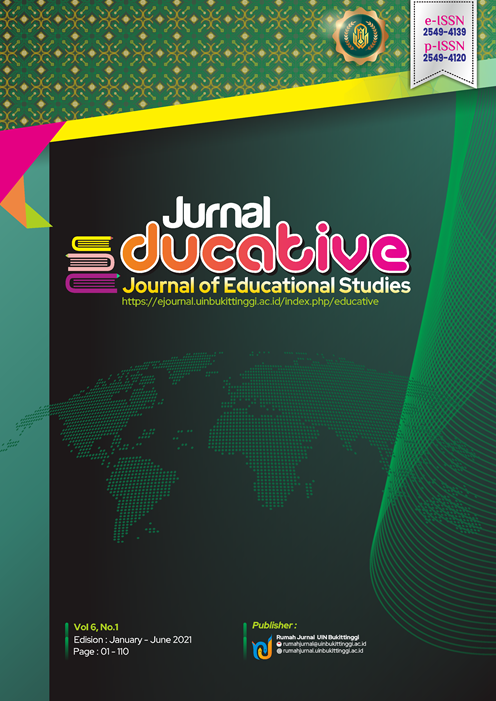



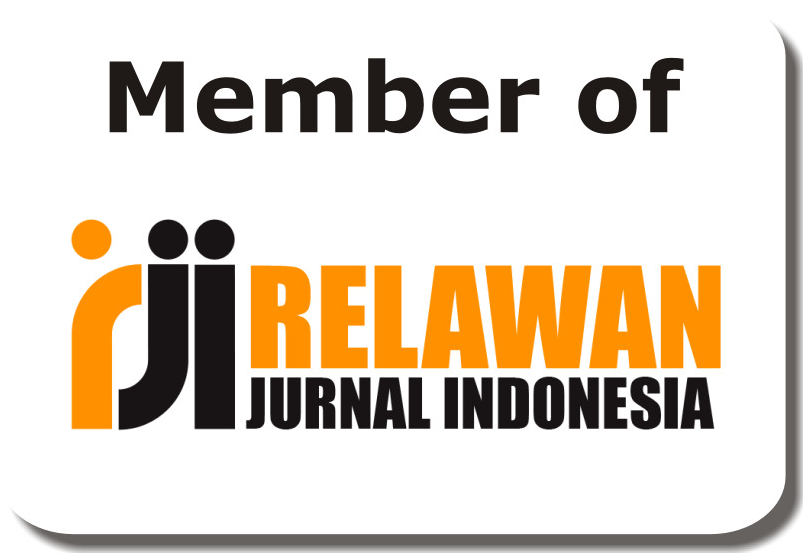


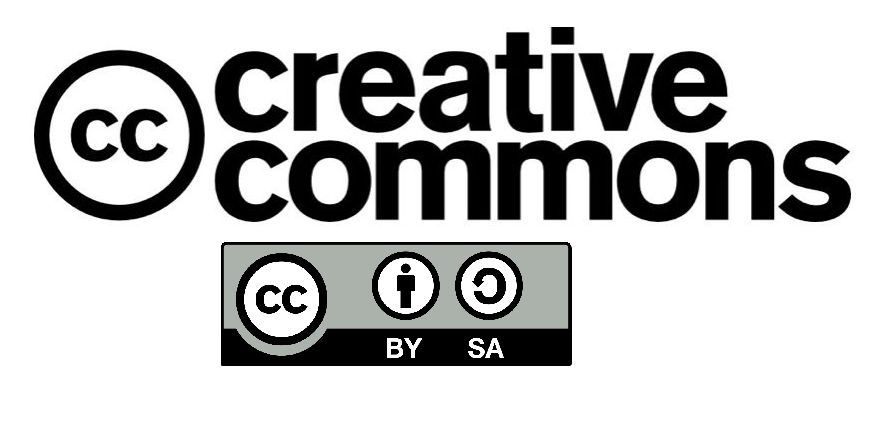


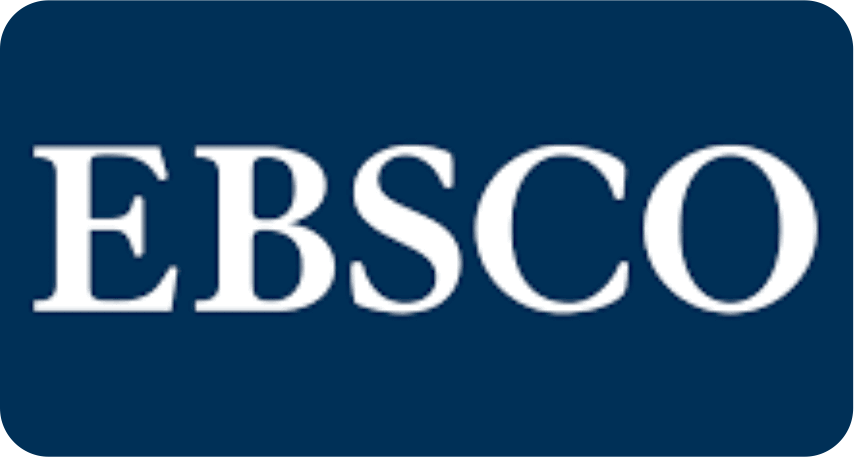






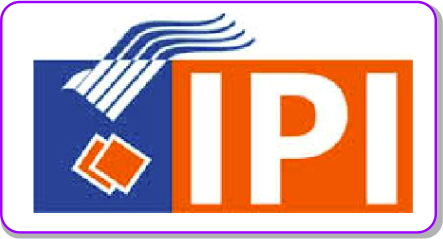 Â
 
